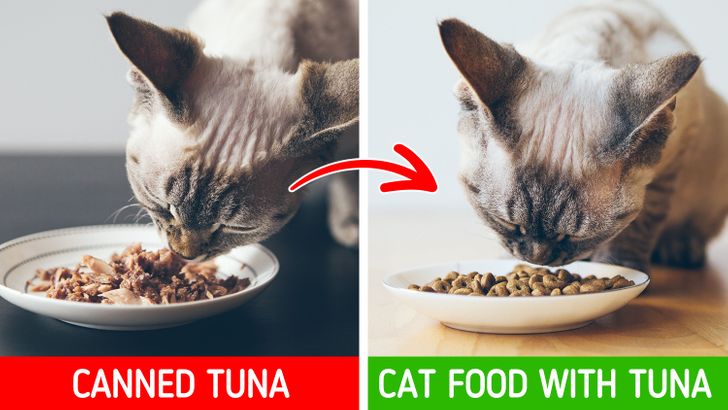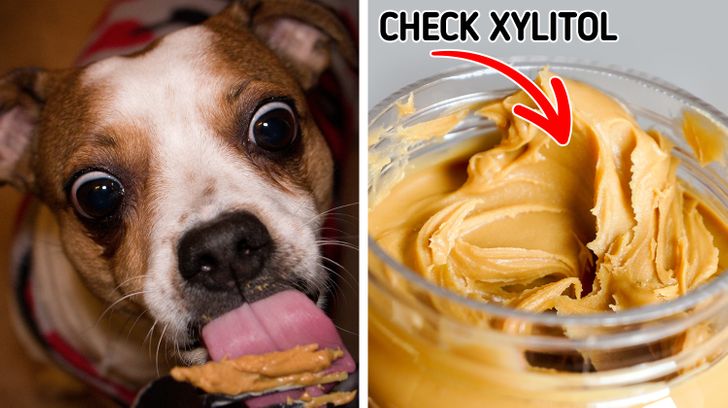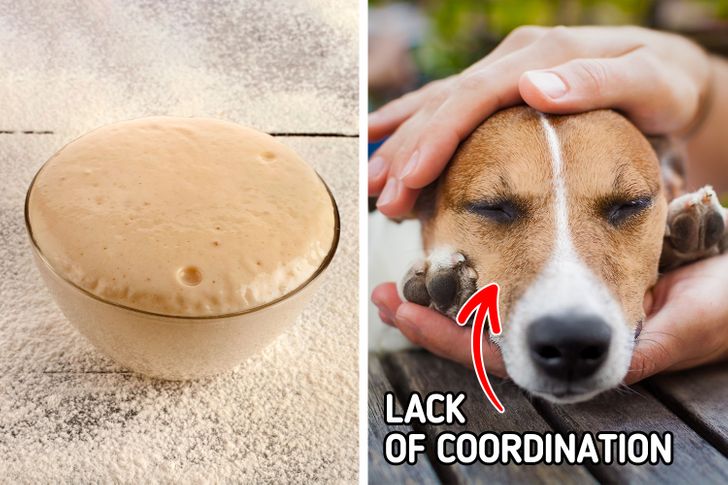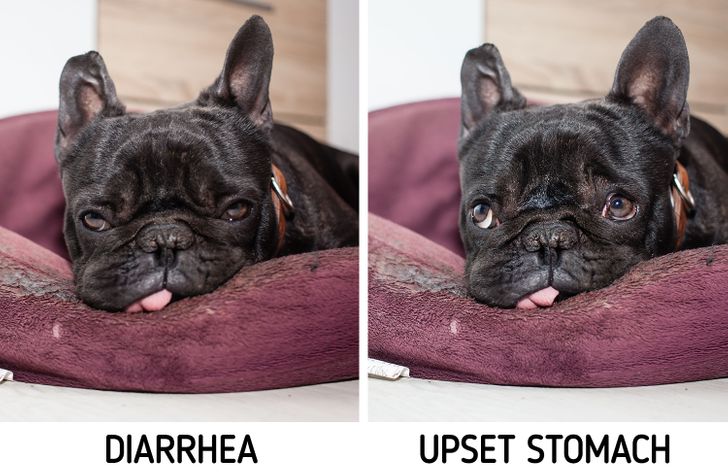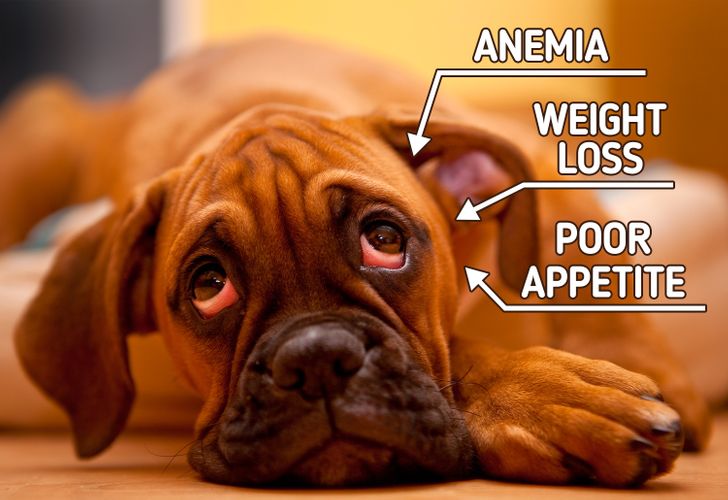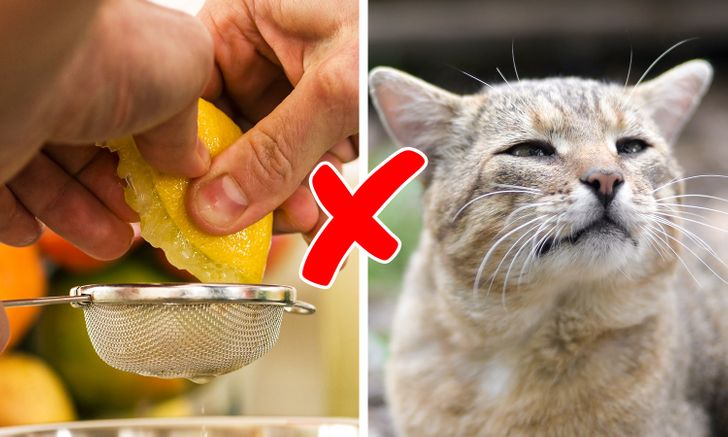My dog is on a special diet, so he's only getting 1 type of food
9 Ordinary Foods That Can Actually Harm Your Pet
We consider our pets to be family members but we can’t forget that their bodies are different than ours and need a different array of nutrients. We may give milk to a cat or peanut butter to a dog as a treat. But the real question is: are we helping or hurting our favorite fluffies?
We at Bright Side also have pets and decided to look into how some ordinary foods can impact them.
1. Pet food that isn’t recommended for this kind of animal
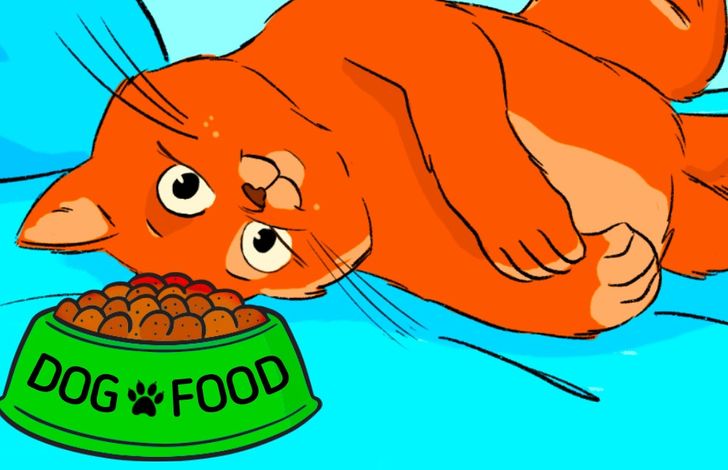
Pets who should avoid this food: cats and dogs
It’s not toxic to give dog food to cats or vice versa, but different kinds of animals need different nutrients. Cat food contains higher protein levels and calories. Dogs need a diet with more fiber.
Cat food also consists of high levels of taurine. They need it for a balanced metabolism. This ingredient is missing in dog food because they can’t metabolize it.
Solution:
If you doubt you’re providing enough nutrition for your pet, veterinarians can help you pick a proper diet.
2. Beans
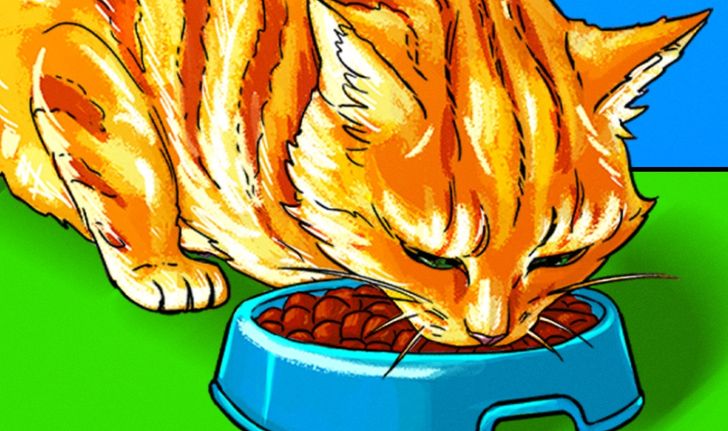
Pets who should avoid this food: cats and dogs
The main problem with canned beans is that they contain preservatives and salt, which are dangerous for pets. For example, half a cup of canned beans contains about 400 to 500 milligrams of sodium. But a pet’s sodium tolerance is very low.
Solution:
If your pet likes beans, opt for green beans, lentils, or dried beans. They shouldn’t be salty or canned. And only give them to your pet in very small amounts.
3. Canned tuna
Pets who should avoid this food: cats and dogs
The biggest lovers of tuna are cats, but even dogs may sometimes consider it to be a treat. Even if your cat demands it, they shouldn’t be fed canned tuna on a daily basis because it can cause poisoning due to mercury, especially if it contains salt or oil.
Solution:
Scientifically-formulated cat food tuna is the best option. There’s no harm in giving it to them from time to time.
4. Peanut butter
Pets who should avoid this food: cats and dogs
Typically, dogs like peanut butter as a treat. But some manufacturers are now adding xylitol to this product, which is toxic to pets. Xylitol is a sweetener that is used instead of sugar because it’s lower in calories. Xylitol can cause low blood sugar and liver failure in pets.
Solution:
Check the nutrients on the jar of your peanut butter, and even if it doesn’t have xylitol, be cautious and don’t give this product to your pet every day because too much sugar can lead to obesity.
5. Yeast dough
Pets who should avoid this food: dogs
Raw bread dough that contains yeast can lead to poisoning in dogs. The dough can expand in the dog’s stomach and cause abdominal distention. As the yeast ferments, blood ethanol can rise to toxic levels. The yeast cells will produce ethanol which leads to a lack of coordination and vomiting.
Solution:
The best solution is to never even give your dog a chance to try yeast dough but in case it does happen without your permission, take the dog to the vet to avoid any unwanted consequences.
6. Milk
Pets who should avoid this food: cats and dogs
We’re not talking about small quantities, but rather, giving your pet lots of milk on a daily basis. A few tablespoons for your dog are okay. Ultimately, this product contains fat that can lead to obesity. Giving a whole bowl of it to your pet can lead to diarrhea, an upset stomach, and vomiting. And don’t forget that they’re like us and can be intolerant to lactose — in fact, almost all cats have a lactose intolerance.
Solution:
Clean water is the best fluid for your pets to consume.
7. Raw meat
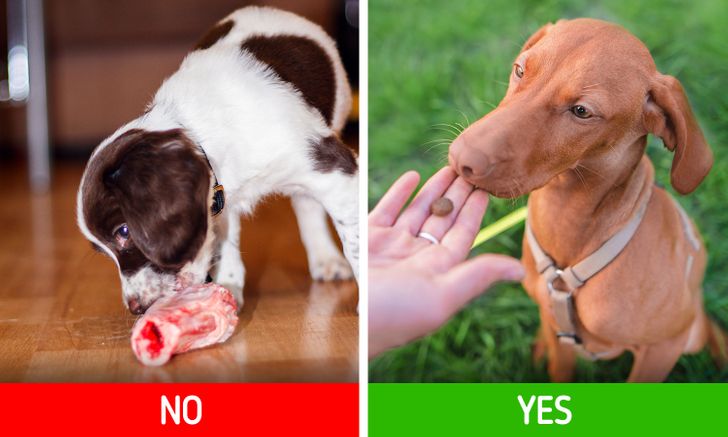
Pets who should avoid this food: cats and dogs
Raw food diets for pets are controversial. On one hand, it’s a good source of protein, but on the other hand, it has bacteria that can harm your pet’s digestion. Certain strains of bacteria can result in sickness. And sometimes it contains small bones and your little buddy could choke.
Solution:
Pick a diet according to your veterinarian’s tips. They can give you advice about what kind of meat is better for your pet’s health. If you’re not sure about the quality of raw meat you’re using, stick to dry pet food that contains enough protein.
8. Almonds
Pets who should avoid this food: dogs and cats
Almonds are not generally forbidden by most experts, but there are some risks that you should know about. Eating large quantities of almonds regularly (or even just once) can cause stomach distress, obesity, and pancreatitis in pets. The symptoms can include vomiting, bloating, and diarrhea.
Solution:
Giving a couple of nuts as a treat is okay, experts say, but you need to monitor the number of eaten nuts and not leave them on the table if your pet can get to them on their own.
9. Citrus
Pets who should avoid this food: cats
Normally, citrus smells repel cats. But still, there can be exceptions, like if some pets don’t consider it offensive. In any case, it’s better not to give any citrus to a cat because it’s toxic for them and causes skin burns after exposure to sunlight. Also, after eating any part of a lemon, they may suffer from weakness, depression, vomiting, and tremors.
Solution:
Keep citrus away from your cat so they don’t ever have any access to it.
What kinds of food do you normally give to your pet? What’s their favorite treat?
Comments
What's wrong with him? is it that serious?
Yes, he gets super unwell if he even takes the smallest of bites from anything other than his vet food
Monty absolutely adores milk, that's why the both of us have lactose free milk, and he only has small amounts.
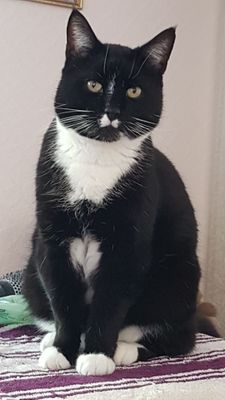
Hi Monty! 😍
As long as you handle raw meat as cautious as if you'd consume it yourself, i.e. store it in the freezer, thaw in the fridge etc., it's perfectly safe for dogs and part of a healthy, natural diet.
But be aware that feeding only steaks, fillets or such doesn't contain enough necessary nutrients.
Related Reads
I Turned My Stepdaughter’s Room Into My Gym — It’s MY House Now

12 Disturbing Events That Crushed People’s Spirits

12+ Harrowing Revelations That Are As Eerie As It Gets

I Refused to Have My Stepmother in My Wedding Pictures

What 15 of Our Favorite Disney Characters Would Look Like If They Were the Opposite Gender

My MIL Excluded Us From the Family Trip Because We Don’t Have Kids, So We Made Her Regret It

17 Stories About Christmas Parties That Ended Up in Disaster

15 People Who Know What Real Danger Feels Like

I Refuse to Sacrifice My Dream for My Stepdaughter’s ’’Stupid Hobby’’

18 Neighbor Stories That Made Us Google “Best Places to Avoid Humans”

I Escaped Our Family Trip After My Son Issued a Humiliating Ultimatum

12 True Stories So Twisted, They’d Make Hitchcock Flinch

